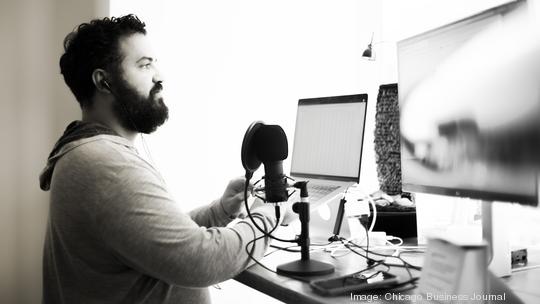
When Steven Galanis started working on his company at Chicago startup incubator 1871, it was just him and an intern at a desk by themselves.
Within four years, Cameo became a unicorn, meaning it reached a valuation of $1 billion or more — the first to come out of the global innovation hub.
"Since then, we've had troubles and we've had layoffs, so we've had the highest of highs and the lowest of lows," the Cameo CEO told a room full of tech students last week.
Galanis was the keynote speaker for World Business Chicago's ThinkChicago Lollapalooza on Wednesday, which attracted more than 300 STEM-focused students from 51 different universities to learn more about Chicago as a place to launch their careers.
His advice to young startup founders was to "always start with the product market fit."
While Cameo has become one of Chicago's most famous startups in recent years, growing its base with thousands of celebrities and moving into a new office in River North in late 2022, it hasn't come without challenges.
Recent venture capital market declines have forced many companies, including Cameo, to "totally change" their playbook in real time, according to Galanis. The biggest challenge that Cameo and many other tech companies that became unicorns in 2020 and 2021 face right now is that the valuations of public tech companies have come down in a very big way, he said.
"If you were running a tech company, or a consumer marketplace business like mine, you were getting valued somewhere between 8x and 12x net revenue, and if you were growing really quickly you might get 12x," he said of the VC market boom of 2021.
As the market took a turn about a year and a half ago, the new valuations of publicly traded consumer marketplace businesses such as Etsy, Grubhub and Uber are now closer to one to three times their revenues.
"So even if your business was doing the exact same revenue, the company might be 70% to 80% less valuable than it is," he said. "That makes it harder to raise capital because people invested in a billion-dollar valuation."
In Cameo's case, the Chicago startup had to execute a series of layoffs over the last year to cut its burn "from $5 million a month to now we're profitable," he said.
"We did that because getting new capital into the business right now is really hard," Galanis said. "People would rather invest in a new venture than in established companies."






